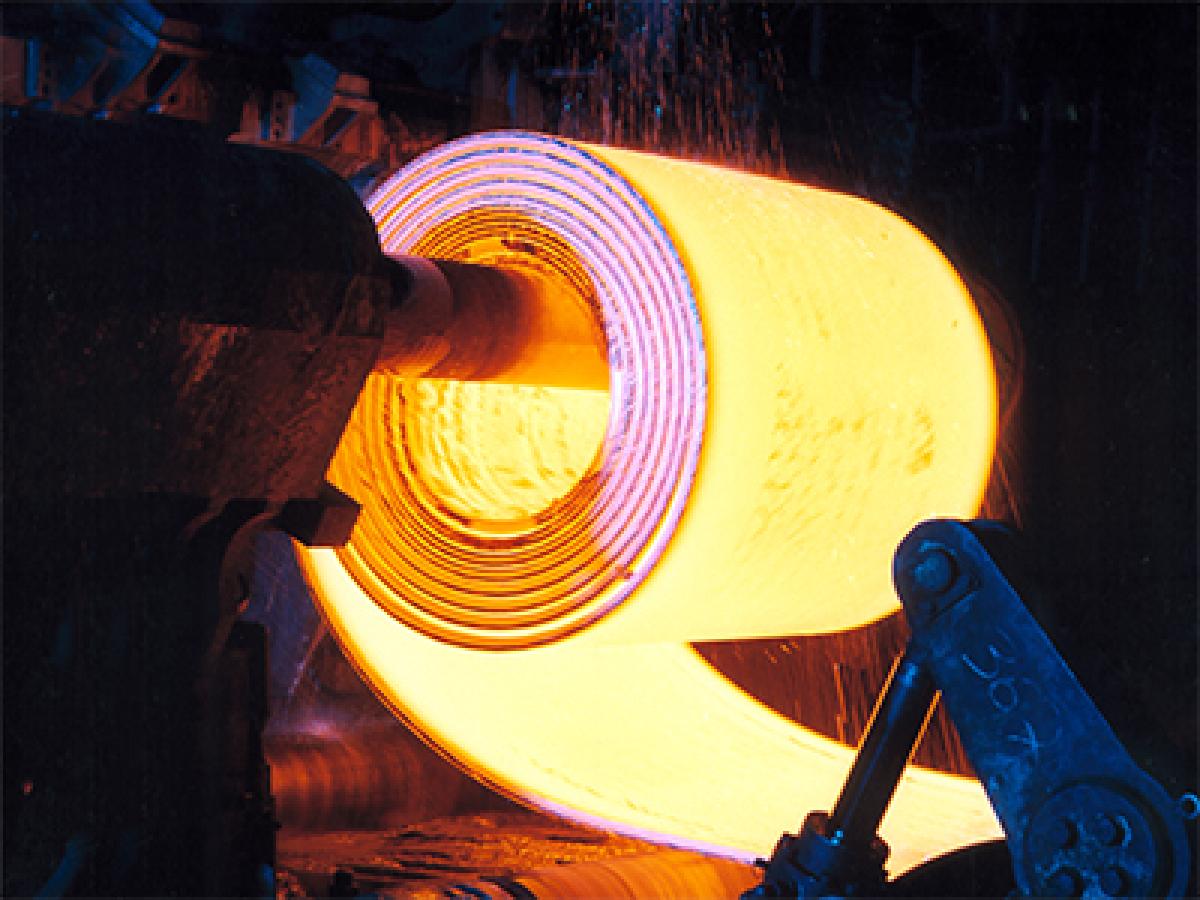Career in Metallurgical Engg

The word metallurgy has a Greek origin: metallon (metal) and ourgia (working). It is one of the oldest sciences, a very broad field of engineering and is a study of science of metals, primarily the physical and chemical properties of different metals, their mixtures and applications.
 I am a 12 standard MPC student and want to pursue metallurgical engineering. Can you explain about this stream and career scope? I have heard that getting a job after doing this is little difficult compared to mechanical, chemical and other streams. Do we have to further do masters for better prospects? -Sandeep Chatterji
I am a 12 standard MPC student and want to pursue metallurgical engineering. Can you explain about this stream and career scope? I have heard that getting a job after doing this is little difficult compared to mechanical, chemical and other streams. Do we have to further do masters for better prospects? -Sandeep Chatterji
The word metallurgy has a Greek origin: metallon (metal) and ourgia (working). It is one of the oldest sciences, a very broad field of engineering and is a study of science of metals, primarily the physical and chemical properties of different metals, their mixtures and applications.
The study includes metal-related properties such as separating metal from its ores, the making and amalgamating of alloys, the study of science and technology of working and heat treating of metals to modify their physical properties, extracting metal from the earth’s crust, processing of metals and other materials, etc The course furthermore equips students with expertise in designing and manufacturing of various metal products ranging from bikes to buildings and planes.
The three main branches of this subject are:
Extractive Metallurgy: extracting metals from ores
Physical Metallurgy: alloyed metals
And Mineral Processing
During your course you will be studying the fundamentals of all the above three and the basics of engineering in general.
Before you choose this field examine whether you possess the relevant skills:
Problem-solving skills and analytical ability
Creative and technical skills
Planning and organisational skills
Oral communication skills
Report writing skills
Keeping yourself updated with the latest research developments
Decision making skills
As it is a hazardous and polluting industry it requires patience and consistent to work hard
Knowledge of experimental techniques, operational features of sophisticated instruments
After your plus two you will have to clear the IIT – Joint entrance Examination. It is a four year program and some top institutes offering this degree programe are:
IIT Kharagpur
IIT Bombay
IIT Madras
IIT Kanpur
IIT Roorkee
IIT Varanasi
College of Engineering, Pune
Gandhi Institute of Engineering and Technology, gunupu
BIT Sindhri, Dhanbad
NIT, Karnataka
NIT, Trichirapally
NIT, Durgapur
Jadavpur university
Banaras Hindu University,
Indian Institute of Science, Bangalore (only PG degree).
Bengal Engineering and Science University, Shibpur
Some of the IIT’s/engineering Institutes offer an integrated BTech and MTech, which is a five- year dual degree
There is a huge variety in work, from the nano level(real small materials) to the giga level (steel structure) in India. Any metallurgical company dealing with production, refining, and manufacturing of metals hires graduates from this stream. The jobs you can get are in:
R&D (research and development) departments in companies that manufacture metals
Factories or automobile manufacturers
Steel plants
Mining industry
Non-ferrous (aluminum, copper, zinc, etc) industry
Research institutions like CSIR-NML, regional research laboratories
There is also scope in defense, aviation , atomic energy, space research and nano science, apart from the traditional metallurgical jobs.
You can study further, do an MS and then a PHD and become a research fellow or a scientist or professor in various labs and universities located in India and abroad. If you pursue an additional course called non destructive testing, you have an option of becoming a quality control officer or manager and grow to be in charge for testing shipment materials. This it is said is a well paid, comfortable and lavish job and placed anywhere abroad.
Core Companies offering jobs:
Steel Authority of India Limited
Tata Steel plant at Jamshedpur
Steel plants of Durgapur, Bhillai, Rourkela and Bokaro
Jindal Steel & Power Limited
Ispat Industries Ltd
John Deere, Pune
Reliance Industries Ltd.
NALCO
SAIL
Hindustan Aeronautics Ltd
HCL
Larsons Group
John Deere
New Bharat Refractories Ltd
The Metal Powder Company Ltd,
Government organisations include ISRO, DRDO, and Railway.
Regarding your doubt whether it would fetch equal opportunities compared to mechanical, chemical, and other popular streams, a degree in metallurgy might narrow your job opportunities and hence I suggest you pursue a degree from IIT or NIT. If you pass out from other institutes you might have to put in additional efforts from your side to get into a core company.
The placements in the PSU’s like India Oil Corporation Ltd would be through GATE.
In the Public Sector steel plants it is through exam conducted by SAIL.
In the Private sector like Tata steel would be through campus placements only.
Through campus placements in the Manufacturing/Automobile Companies like Tata Motors
Oil, Piping sectors (esp. based in Middle East) also hire Metallurgists
Metallurgical Consultancies like MECON Ltd
Regarding the scope in this career, as stated by Dr Prakash Scientist, National Metallurgical Laboratory, Jamshedpur, India is likely to produce 200 million tons of steel and this would give a steep rise to the scope (of work) of a metallurgical engineer. Keep brushing up your communication skills, your mathematical abilities, aptitude along with GK and this would surely help you crack the PSU exams and the interviews and GD’s and lead to an excellent resume and a satisfying career. Wish you all the best!
By: Shehre Banu Kagalwala








